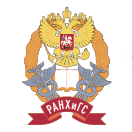Introduction
The Russian Presidential Academy of National Economy and Public Administration (RANEPA) is an important federal state higher education institution in Russia. It is mainly committed to talent training and scientific research in the field of national economy and public administration. It has a high reputation in Russia and even internationally.
Overview
Student size: There are about 54,592 students, including 1,790 international students.
Faculty: There are 6,192 faculty members, of which 99% are domestic employees and 1% are international employees.
History and establishment time
The history of the academy can be traced back to the establishment of the Academy of National Economy under the Government of the Russian Federation in 1977. At that time, it mainly provided business and educational programs to train professional talents such as civil servants, entrepreneurs, financiers and lawyers.
In 1991, the Russian Academy of Public Administration was established and played an important role in the field of public management training.
On September 20, 2010, according to the decree of the President of Russia, the Academy of National Economy, the Academy of Public Administration and 12 other academies were established. The Russian Presidential Academy of National Economy and Public Administration was formally established by merging regional educational institutions.
School Strength
Teaching Quality: As one of the largest social economic and humanities universities in Russia, it provides undergraduate, expert, master and doctoral education courses at multiple levels, covering economics, management, law, social sciences, information technology, medicine and other fields. It has 113 bachelor's degree programs, 11 expert degree programs, nearly 150 master's degree programs and 7 vocational/associate degree programs. The courses are rich and keep up with the needs of the times. It focuses on cultivating students' practical ability and innovative thinking, so that students can better adapt to the needs of society and the workplace.
Scientific Research Achievements: The college has carried out extensive and in-depth research in the fields of economy, management, public policy, etc., and has achieved a series of important scientific research results, providing important intellectual support for Russia's economic development and social progress. The research results have not only had a wide impact in the academic community, but also provided useful references for government decision-making and corporate development.
International Exchange: The college actively carries out international cooperation and exchanges, and has established cooperative relations with many universities and research institutions around the world. It has carried out projects such as student exchange, teacher exchange, and joint research, which has enhanced the college's international influence and reputation, provided students with a broad international exchange platform, and cultivated students' international vision and cross-cultural communication skills.
Nature of the institution
A public non-profit higher education institution.
Educational philosophy
Aims to cultivate professionals in the fields of economics and public management with high professionalism, innovative spirit, social responsibility and international vision, focusing on the combination of theory and practice, emphasizing the improvement of students' comprehensive quality, so that students can apply what they have learned in a complex and changing social and economic environment. Knowledge and skills, make positive contributions to the development of the country and society, and at the same time, focus on cultivating students' leadership and teamwork ability to adapt to the future management needs in government, enterprises and social organizations.
Key laboratories and disciplines
Key laboratories: The college has a number of advanced scientific research laboratories and research centers, such as the Economic Analysis and Forecasting Laboratory, the Public Policy Research Center, the Information Technology Innovation Laboratory, etc., which provide good conditions and platforms for teachers and students to carry out scientific research activities. These laboratories are equipped with advanced instruments and software tools to meet the scientific research needs of different fields.
Key disciplines: Economics, management, public administration, law, sociology, political science and other disciplines are the key disciplines of the college, with high levels and strong strengths in teaching and scientific research. Among them, economics and management are The school has performed well in the QS World University Rankings by Subject, with some majors ranked in the top 201 in the world.
Faculty
The college consists of 22 faculties, including the Faculty of Economics, the Faculty of Journalism and Political Science, the Faculty of Information Technology, the Faculty of Law, the Faculty of Natural Sciences, the Faculty of Social Sciences, the Faculty of History, the Faculty of Engineering, the Faculty of International Relations, the Faculty of Medicine and Health Sciences, the Faculty of Arts, etc., covering a wide range of subject areas and providing students with a wealth of professional choices.
Ranking
2025 QS World University Rankings: 1001-1200.
2024 THE World University Rankings: 1501.
2024 Webometrics World University Rankings: 2725.
2024 Nature Index Academic Rankings: 3233.
Expenses
Tuition: Undergraduate degree US$2500-12000, Master's degree US$3000-15000, Doctoral degree US$12000-20000 USD.
Accommodation fee: about 600 USD per month.
Campus
Teaching facilities: The college is located in Moscow, with the main campus address at 82-84, Prospect Vernadskogo. It has modern teaching buildings, libraries, laboratories, computer centers and other teaching facilities, providing students with a good learning environment. The library has a rich collection of books, covering books and journals in many fields such as economics, management, law, and social sciences, providing strong literature support for the teaching and scientific research of teachers and students.
Campus environment: The campus environment is beautiful, with a high green coverage rate, and there are many leisure squares and gardens, providing students with a comfortable leisure space. In addition, the college also provides students with sports facilities, student dormitories, canteens, cafes and other living facilities to meet the daily needs of students.
-

Peter the Great St.Petersburg Polytechnic University
-
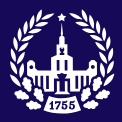
Moscow State University M. V. Lomonosov
-
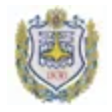
Bauman Moscow State Technical University
-
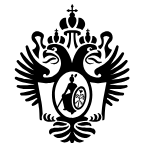
St. Petersburg State University
-
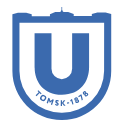
Tomsk State University
-
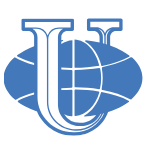
Peoples' Friendship University of Russia
-
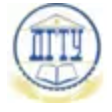
Don State Technical University
-
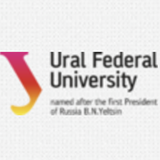
Ural Federal University
-

Moscow Institute of Physics and Technology
-
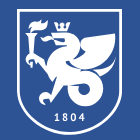
Kazan Federal University
-

Mesoamerican University
-

Istmo University
-

Mariano Galvez University of Guatemala
-

Regional University of Guatemala
-

Galileo University
-

Francisco Marroquín University
-

Rafael Landívar University
-

University of the Valley of Guatemala
-

University of San Carlos of Guatemala
-

Technological Institute of Tlaxcala Plateau
-

Golfo University
-

Technological University of South Sonora
-

Technological University of Huejotzingo
-

Tizimín Institute of Technology
-

Chilpancingo Institute of Technology

